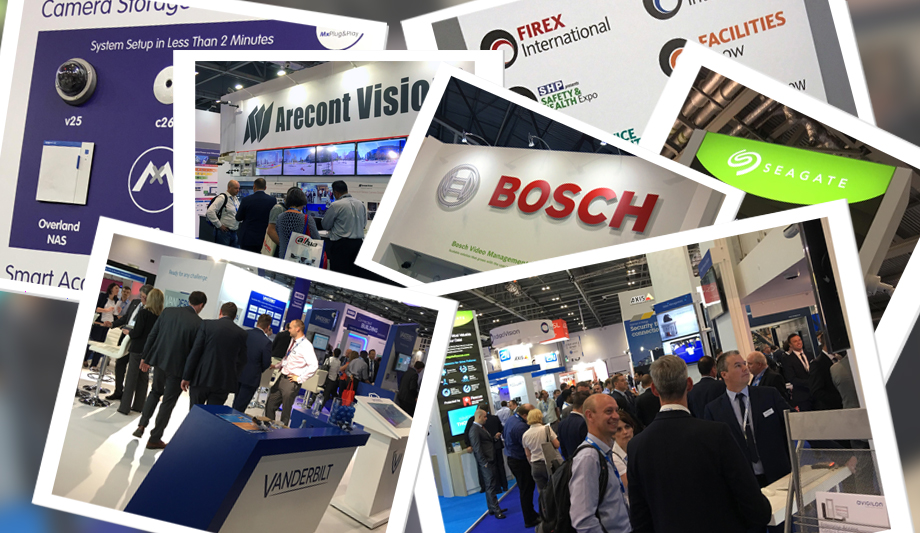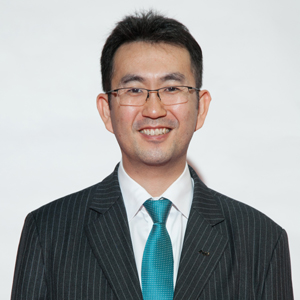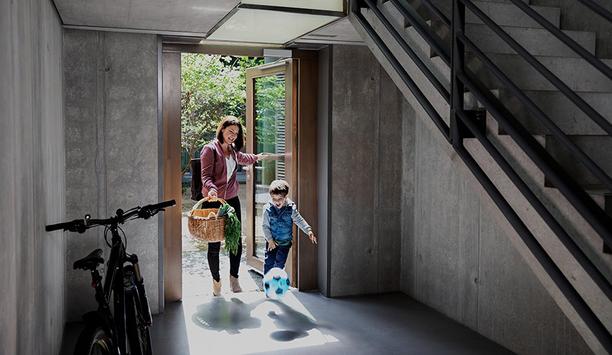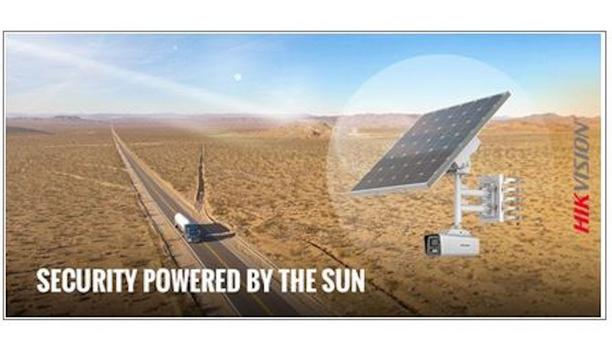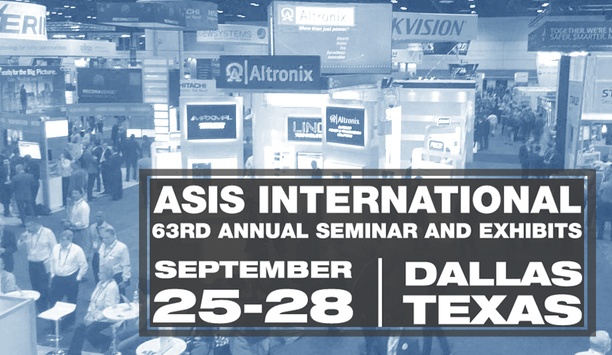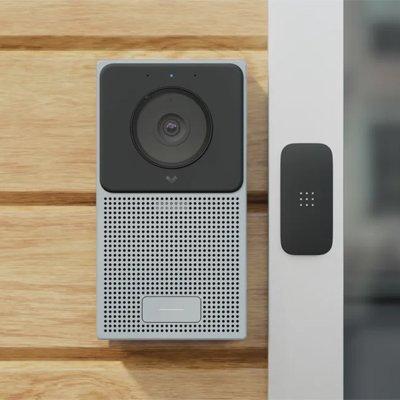Has there ever been a better time for a security trade show in Europe? Shifting threats such as terrorism and a volatile political climate serve as reminders every day of the importance of security in our lives, and even the role of technology.
IFSEC opened in London on Tuesday at the ExCeL centre, covering every aspect of security, from access control and video surveillance to home automation and perimeter security. Amid sweltering heat, attendees came to find the latest-and-greatest innovations to meet changing security challenges.
Substance over style
Many of the technology announcements were "repurposed" news previously unveiled in the United States at the spring ISC West show in Las Vegas. Even so, there was plenty to see, although foot traffic seemed a little slow on the first day.
Several people commented on how IFSEC is different from ISC West. The US market, exemplified by ISC West, tends to emphasise superlatives and flashy market claims, while the European market is more about substance. That observation comes from Moti Shabtai, CEO and President of Qognify, who said he has a larger share of conversations at IFSEC about how a solution can address specific needs. "Europe isn't one single market," he reminds us. "There are more different kinds of customers and different approaches, while the US market has a more unified way of thinking." Safe and secure cities applications (and "smart cities") are more prominent in Europe. While in the US, utility applications are higher profile, driven by a need to conform to NERC/FERC standards.
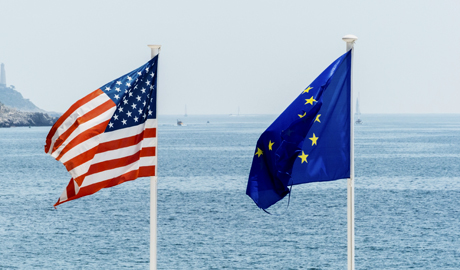 |
| The European market has more different kinds of customers and different approaches |
"The competition in Europe is more varied, with more smaller players, depending on which product and market," adds Kim Loy, Director of Marketing for Vanderbilt. "It makes it a more dynamic landscape." One variable Loy points to is how advanced each European market is from a technology perspective. For example, the Nordic countries -- Sweden, Norway, Denmark and Finland -- tend to embrace technology, and Vanderbilt is already seeing success there with its cloud-based products, the ACT365 cloud access control and video system and SBC Connect for cloud-managed intrusion detection.
Current events in Europe add an air of urgency to the show. Several recent terrorist attacks have highlighted the need for more and better security. In emergency situations, often the security industry's contributions come after the fact, notes Shabtai. It took police in Brussels, Belgium, five days to find a suspect in the 2016 terrorist attack there. However, technologies such as Qognify's Suspect Search can now sift through databases to find video clips relevant to an investigation within minutes. More analysis of disparate information can in some cases provide predictive capabilities, or at least help direct investigations aimed at preventing such events.
Adapting to vertical markets
Many exhibits at IFSEC reflect the trend we are seeing of companies expanding their product selection beyond what was previously their core competency. Several video companies, in particular, are displaying an expanding array of products. It's a continuation of the familiar trend of video companies like Genetec, Avigilon, Hikvision and others expanding into access control systems.
At IFSEC, Genetec says they are focusing on outcomes rather than technology, highlighting systems designed for specific use cases and vertical markets. Importantly, Genetec's systems provide flexibility to adapt to a variety of issues in various markets, whether a specific vertical or in the United States, Europe, or anywhere in the world.
 |
| Privacy and cybersecurity are especially relevant in Europe |
Privacy and cybersecurity are hot-button issues for Genetec, says Jean-Philippe Deby, EMEA Business Development Director. It's especially relevant in Europe, where the European Union has embraced general data protection regulations (GDPR) that require compliance by May 2018 (The UK has committed to compliance despite the Brexit vote.) It's another element in the industry's growing focus on cybersecurity and systems highlighting "privacy by design."
But global business trends are eliminating some of the differences in the security industry around the world, says Dr. Peter Kim, Senior Director of IDIS.
Globalisation trumps regional phasing
"Perhaps the biggest difference at IFSEC this year is the realisation that there is less of a difference than ever before between the US and European markets," he says. "Globalisation increasingly means access in Europe to brands and their product offerings is more equal than ever before—something you see here at this and all of the major security shows around the world. New technologies are increasingly rolled out globally either at the same time or close together, as opposed to regional phasing."
Europe and America have different drivers and priorities at different times, including those influenced by geopolitics and recent crises, which can drive demand for technology to meet specific security requirements, Kim notes.
One thing both markets have in common right now is geopolitical churn in various forms—including the threat of terror and a number of significant elections—which can lead to increased uncertainty. "This is especially relevant for government contracts, as public projects, which can be quite substantial from a security standpoint, often stall in such environments," Kim notes.
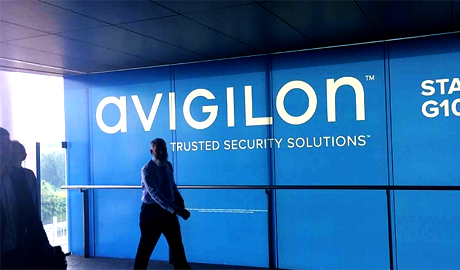 |
| Avigilon dominates the signage and video displays as visitors enter the ExCeL Centre |
Avigilon dominates the show
Avigilon is one company that is introducing new products at IFSEC (that were not previously viewed at ISC West). They include the Avigilon Presence Detector (APD), a sensor that combines self-learning analytics with impulse radar technology to accurately detect the presence of a person even if they have stopped moving or are hidden. The sensor is designed for indoor locations such as vestibules within banks, pharmacies, retail stores and health care facilities. Avigilon is also highlighting a new Mini Dome Camera Line, and integration of its Access Control Manager (ACM) system with biometrics, among other products.
Avigilon is making a big splash at the show. They dominate the signage and video displays as visitors enter the ExCeL Centre. I'm looking forward to seeing more interesting technologies in the remaining two days of the show.
